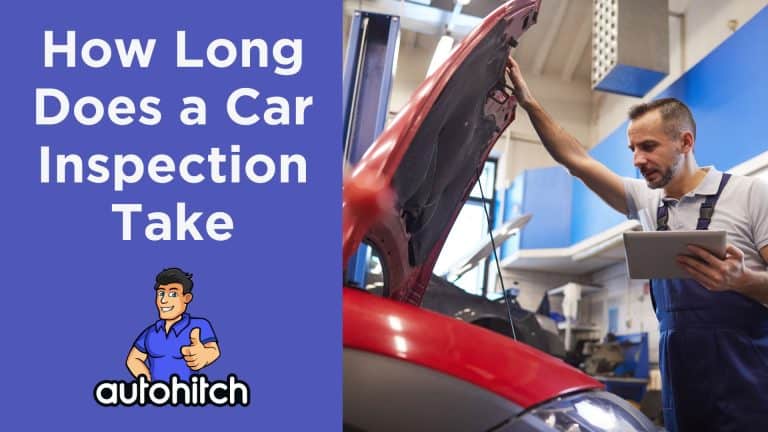As a car owner, you’ve likely wondered, “How long does a car inspection take?” The answer can vary significantly depending on the inspection type, your vehicle’s condition, and even the state you live in.
In this guide, we’ll break down the different types of car inspections and provide a comprehensive answer to this common question.
Table of Contents
Understanding Different Types of Car Inspections
Car inspections are crucial for ensuring the safety and performance of a vehicle. However, not all inspections are the same. Here are the most common types of car inspections and how long each one typically takes:
| Inspection Type | Typical Duration | Overview |
|---|---|---|
| Safety Inspection | 30 min – 1 hour | Checks key safety components like brakes, tires, lights. |
| Emissions Inspection | Checks key safety components like brakes, tires, and lights. | Tests exhaust emissions to ensure they meet regulations. |
| Pre-Purchase Inspection | 1 – 2 hours | Comprehensive inspection when buying a used car. |
| Annual Inspection | 1 – 1.5 hours | Required in some states, combines safety and emissions checks. |
State Requirements for Car Inspections
Car inspection laws vary by state. Some states require periodic inspections of all vehicles, while others may only require inspections for certain types of vehicles or in specific circumstances. It’s essential to understand the laws in your state to know what kind of inspection your vehicle needs and how often.
How Long is a Car Inspection Good For?
Car inspection expirations vary depending on which state you are in. Below are 5 examples from 5 different states to give you an idea (on average) how long a car inspection is good for:
- Texas: Vehicle inspections are required annually. However, new vehicles purchased from a dealership have a valid inspection for two years.
- New Hampshire: Vehicles must undergo a safety inspection within 10 days of initial registration. Afterward, cars need to be re-inspected every year, no later than 10 days after the end of the owner’s birth month.
- New York: Each vehicle registered in New York State must be inspected at least every 12 months.
- West Virginia: As of March 6th, 2023, vehicles in West Virginia are required to undergo an official state inspection every two years, instead of one.
- Maryland: Most used vehicles are required to undergo a safety inspection prior to sale or transfer. The inspection certificate is valid for 90 days.
Please note that these regulations may change over time, so staying up-to-date with your state’s requirements is essential.
What to Expect During an Inspection
The inspection process typically involves:
- Checking the vehicle identification number (VIN)
- Verifying registration and insurance papers
- Performing a road test
- Lifting the vehicle for an undercarriage inspection
- Testing all major systems and components
If any issues are found, the mechanic will provide a detailed inspection report. You’ll also receive documentation showing completion of the inspection.
How to Streamline the Inspection Process
To help reduce wait times, consider these tips:
- Schedule inspections early in the day or week
- Avoid end-of-month rush periods
- Find stations offering inspection appointments
- For quick oil change places, inspection happens during the oil change
- Have paperwork ready in advance
- Drop off the vehicle to avoid waiting around
While there’s no rushing a thorough inspection, proper planning can help streamline the process. Most importantly, regular inspections keep your car safe and road-ready.
Conclusion:
Car inspections are a vital part of vehicle ownership, ensuring the safety and functionality of your vehicle. While the time it takes can vary depending on the type of inspection, understanding what to expect can help you plan accordingly and ensure your vehicle remains in top condition.



